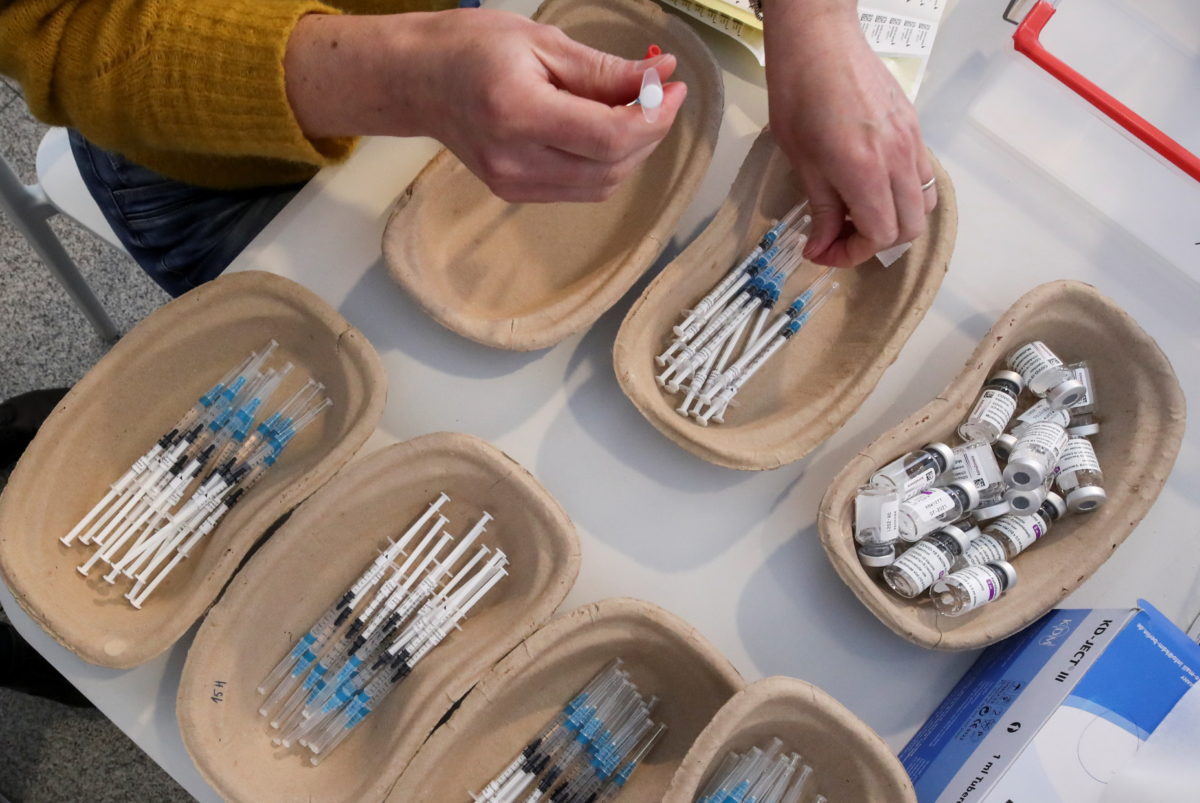
A medical worker prepares doses of Oxford/AstraZeneca’s COVID-19 vaccine at a vaccination centre in Bierset, Belgium March 17, 2021. REUTERS/Yves Herman
A year into the COVID-19 pandemic, vaccination campaigns are accelerating in rich countries, but in less well-off nations people are told they will have to endure humanitarian and economic decimation for up to two more years, before their turn to get the shots finally arrives. To avert a moral lapse of global proportions and the prolongation of the pandemic, AIDS Healthcare Foundation, the largest global HIV/AIDS organization, calls on the US government and other wealthy nations to stop hoarding vaccines and take concrete steps to alleviate vaccine inequality around the world.
“With the rise of more deadly and infectious variants of SARS-COV-2, global institutions cannot wait until the end of 2022 to vaccinate the world – hoarding vaccines is immoral, but more importantly it is suicidal,” said AHF President Michael Weinstein. “If we wait years for vaccines to cover much of the developing world, the variants will win and the virus will conquer back whatever ground we have gained. As in World War II, the United States must lead the D-Day charge on COVID-19 by commandeering necessary manufacturing resources, suspending patents, coordinating supply lines and providing ample funding in the name of global public health security.”
Of the 383 million doses of COVID-19 vaccines administered globally to date, nearly 50% went to the US, EU, and UK, which together represent only 11% of the world’s population. By contrast, most countries in Africa have administered no vaccine doses at all. Morocco, the country on the continent with the highest percentage of population vaccinated, has only reached 12% with at least one dose.
The scale of vaccine hoarding is most starkly apparent in the vast quantities of doses some countries have locked up in production contracts in excess of what is needed to vaccinate their entire populations. According to Bloomberg, some of the top offenders include the UK, with enough doses under contract for current and future production to cover 340% of its population, Canada at 335%, and Hungary at 267%, among others.
While the United States is not at the top of the offending list, it has secured production commitments to vaccinate its entire population two times over. In terms of total vaccine contracts, the US is holding the largest share, including vaccines that are not yet even authorized by the FDA for emergency use, such as the AstraZeneca vaccine.
Recently, President Andres Manuel Lopez Obrador of Mexico asked President Biden for a vaccine “loan”, since the AstraZeneca vaccine is approved for use in Mexico, but so far there has not been a definite reply to the request. The US government should capitalize on such opportunities as much out of humanitarian considerations as out of desire to see the world return to economic growth and stability, especially among its neighbors.
“Benjamin Franklin, a founder of the US republic famously said, ‘We must hang together, or surely we shall hang separately.’ The same can be said for pandemics,” added Weinstein. “What use is it to vaccinate only the rich countries while new, more deadly variants spring up in developing countries? We must set aside patent monopolies, increase vaccine funding and call on countries to do everything they can to cooperate and coordinate their efforts.”


